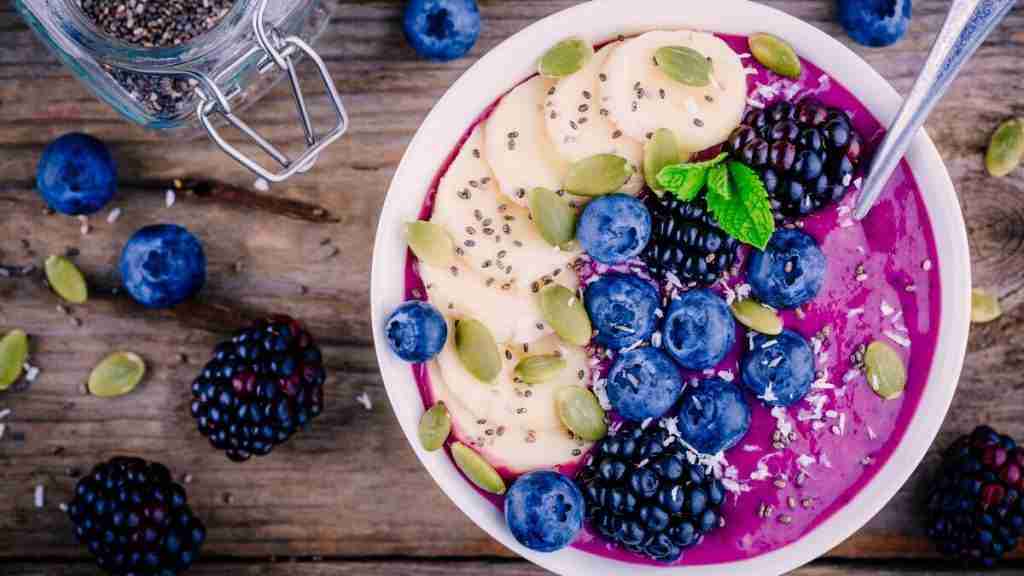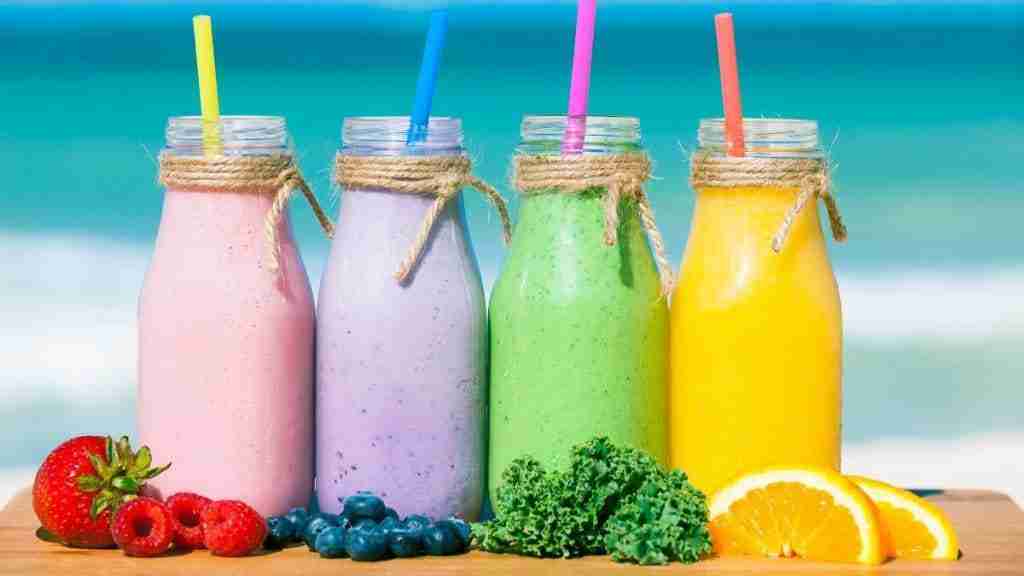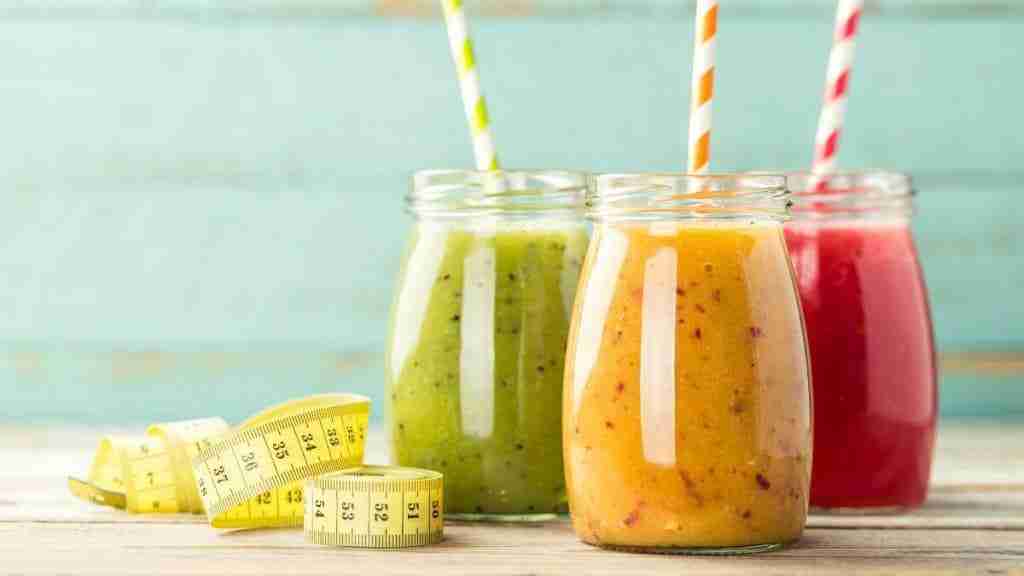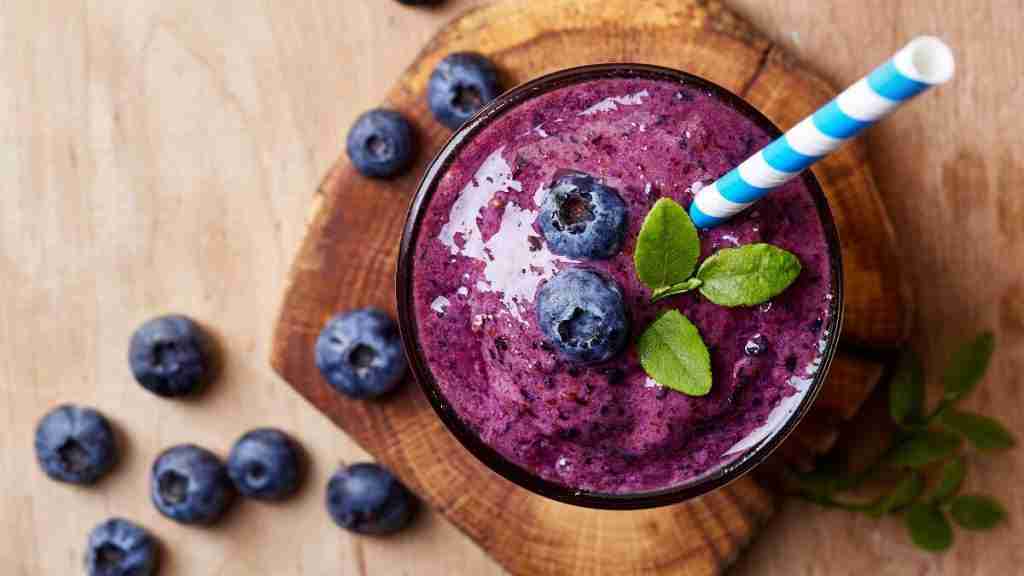One of the questions people ask is, are vegetable smoothies good for you? I have done a lot of research on smoothie advantages and disadvantages because I am considering increasing my smoothie intake, and I am very excited to share it with you.
Let us explore this question first: are vegetable smoothies good for you? A green smoothie is healthy and nutritious, but a diet consisting of only green smoothies might be less beneficial. Consider adopting a balanced diet with fruits and vegetables, whole grains, lean protein, and heart-healthy fats. Additionally, vegetable smoothies are excellent for you — BUT like anything in life, green smoothies’ pros and cons exist.
In this article, you will learn everything you need about smoothies’ advantages and disadvantages to help you stay healthier and happier.
See also: 20 Simple and Effective Tips On How to Make a Smoothie Thicke.
Check out a quick video summary of this article.
Table of Contents
What Are Smoothie Advantages And Disadvantages?
Let’s first discuss the advantages of smoothies.
Benefit Of Smoothies
Adding smoothies to your diet offer tremendous benefits for your health. Here are the key benefit of smoothies:
1- Smoothies Helps You Lose Weight
Smoothies can support you in losing excess body weight without skipping any meals. The ingredients in healthy green smoothies are excellent companions for keeping you healthy and feeling more refreshing throughout the day. The nutrients present in various fruits also help burn body fat.
A study published in the British Medical Journal (BMJ) observed that a higher intake of foods rich in flavonoid polymers, a substance found in various fruits and vegetables, may help lose and maintain weight adults.
See also: 15 Benefits and Disadvantages of Mango That You Should Know
2- Smoothies Increase Your Sense of Fullness
What fruits and vegetables you eat determine how full you feel because foods affect fullness differently. Thus, the fruits and vegetables you add to your smoothies determine the smoothies’ effectiveness in helping you lose weight.
If you always find yourself snacking because you never feel full, try green smoothies.
What to add to your smoothies:
- Greek Yogurt: It increases your feeling of fullness and helps you feel less hungry till your next meal.
- In a 2013 study, women ate a 160-calorie yogurt snack that was low, moderate, or high in protein.
- The females who consumed the high-protein Greek yogurt felt full the longest, were less hungry, and consumed dinner later.
- In a 2013 study, women ate a 160-calorie yogurt snack that was low, moderate, or high in protein.
- Vegetables: Vegetables contain all kinds of minerals, vitamins, and beneficial plant compounds.
- Cottage Cheese: Cottage cheese is full of protein but low in fat and calories.
- Legumes: Legumes are an excellent source of protein and fiber and may help you feel full compared to other foods.
- Fruit: Whole fruit substantially affects fullness more than fruit juice.
- Quinoa: Quinoa is an excellent source of protein and fiber, which may enhance your feeling of fullness.
- Nuts: Nuts like almonds and walnuts are energy-dense, nutrient-rich smoothie options.
- A study showed that consuming almonds may help you lose weight and keep it off.
- Coconut Oil: Adding coconut oil to your smoothie can significantly help you reduce your appetite and calorie intake.
For a big protein boost, include ingredients such as spinach, greek yogurt, cottage cheese, and almonds in your smoothies.
See also: 18 Veggies That Destroy Stomach Fat – Backed By Science
3- Smoothies Helps Control Cravings
Smoothies, mainly green smoothies, help you feel fuller and control your cravings for snacks and junk food.
A small study issued in the American Journal of Clinical Nutrition observed that making your smoothie thicker can help keep you on track with your fitness goals.
A group of researchers had 15 males drink four different smoothies that varied in calorie content (between 100 calories and 500 calories) and thickness.
After drinking their smoothies, researchers examined the participants’ stomachs using an MRI to discover how full they were and how full they remained.
The participants were also asked to rank their appetites on a 100-point scale. Both markers were reported every 10 minutes for up to an hour and a half after.
Predictably, the thick smoothie kept individuals fuller longer than the thin version-more. Calories mean more energy to burn through.
Individuals who drank the thick smoothie reported feeling fuller for even longer than when those who drank the thin smoothie. The study concluded that the thicker the drink, the more it fills your stomach.
4- Smoothies Improve Digestion
According to JJ Smith, a dietitian and certified weight-loss expert, author of Green Smoothies for Life, green smoothies are much more comfortable to digest and metabolize than solid food.
Some individuals do not digest solid foods effectively, so the body does not completely absorb the nutrients from the food.
Processed and junk foods, excessive gluten and proteins, fried foods, and other unhealthy fats are the principal reasons behind the digestive issues most of us face.
Since green smoothies are thoroughly blended, most of the work your digestive system would generally need to do is already done.
Your body can then more smoothly assimilate and extract the nutrients needed for optimum health.

5- Smoothie Help You Sleep Better
According to the National Sleep Foundation (NSF), about 43% of Americans between the ages of 13 and 64 seldom or never get a good night’s sleep on weeknights.
An excellent ingredient to add to your smoothie is tart cherries.
A tart cherry smoothie can help enhance the body’s melatonin levels, reduce insomnia symptoms, and improve sleep quality.
A study concluded that consuming tart cherries increases melatonin, improving sleep quality and duration in both men and women.
6- Smoothies Can Help Improve Your Skin Health
It may be time to shake up your beauty routine and try something new. It turns out that the food you put in your body is just as crucial as the toners and moisturizers that line your bathroom shelf.
A group of researchers from Bristol and St Andrews universities has found that diet may be crucial to obtaining the most desirable complexion.
Try adding to your smoothie glow-getting ingredients like cucumber, pitaya, or chia seeds that can improve your skin health.
Studies have revealed that drinking smoothies made from foods containing carotenoids can give you a beautiful glow.
7- Smoothies Can Help Boost Your Brain
According to Psychology Today, consuming fruits and vegetables has significant advantages in different aspects of brain function.
Jim Kwik, a learning expert, shares his favorite brain foods for nourishing and boosting your brain health.
What are these brain foods for nourishing and boosting your brain health?
- Avocados – are full of good fats to nourish your brain.
- Blueberries – include antioxidants and phytochemicals to enhance cognitive function.
- Green leafy vegetables – They are excellent for protecting your neurons.
- Coconut oil – is full of good fats to nourish your brain.
- Soaked walnuts – full of healthy fats for brain health.
- Raw cacao – Possess mood and mind-boosting attributes.
8- Smoothies Help You Feel Happier
Research recommends that “healthy” food choices such as fruits and vegetables have physical and mental health benefits.
In other words, when you choose to eat fruits and vegetables, you decide to invest in your future well-being.
A 2017 study from the University of Konstanz in Germany found that consuming vegetables led to a higher level of happiness compared to sugar or unhealthy food induced at the moment.
The study observed 14 food categories and concluded that eating vegetables contributed the most to happiness measured over eight days.
The researchers observed that fruit and vegetable consumption benefits well-being indicators, such as happiness or general life satisfaction in future well-being.
See also: 32 Foods That Burn Belly Fat Fast – Based on Science

9- Smoothies Help You Fight Depression
Fresh vegetables and fruits rich in folic acids, such as broccoli, spinach, and bananas, help you fight depression.
Several recent research investigations looking at multiple studies support that there is a connection between what one eats and our risk of depression.
A diet with high consumption of fruit, vegetables, whole grain, low-fat dairy, fish, olive oil, and antioxidants and low consumption of animal foods was associated with a reduced risk of depression.
A diet marked by high consumption of red and processed meat, refined grains, sweets, high-fat dairy products, potatoes, butter, and high-fat gravy, and low intakes of fruits and vegetables is linked with an increased risk of depression.
The key recommendation from Harvard experts is to eat plants, including fruits and veggies, whole grains (in unprocessed form, ideally), seeds, nuts, and yogurt.
The good news, you can have all of this in your green smoothie. Right?
10- Smoothies Help To Prevent Dehydration
According to the Centers for Disease Control and Prevention (CDC), drinking enough water can prevent dehydration. This situation can cause unclear thinking, mood change, constipation, kidney stones, and even cause your body to overheat.
Smoothies are an excellent way to keep yourself hydrated.

11- Smoothies Are Full of Antioxidants
Which fruit and vegetable contain Antioxidants? According to Harvard, higher intakes of antioxidant-rich fruits, vegetables, and legumes help lower the risk of chronic oxidative stress-related diseases such as cardiovascular diseases, cancer, and deaths from all causes.
The following are foods with antioxidants to add to your smoothies.
- Vitamin C – Broccoli, Brussels sprouts, cauliflower, cantaloupe, grapefruit, leafy greens, honeydew, lemon, kale, kiwi, orange, papaya, snow peas, tomatoes, strawberries, sweet potato, and bell peppers (all colors).
- Vitamin E – Almonds, avocado, Swiss chard, leafy greens, peanuts, red peppers, spinach (boiled), and sunflower seeds.
- Carotenoids including beta-carotene and lycopene – Apricots, beets, asparagus, broccoli, cantaloupe, carrots, bell peppers, kale, mangos, turnip and collard greens, oranges, peaches, pink grapefruit, pumpkin, winter squash, spinach, sweet potato, tangerines, tomatoes, and watermelon.
- Selenium – Brazil nuts, barley, brown rice.
- Zinc – Sesame seeds, pumpkin seeds, chickpeas, lentils, cashews.
- Phenolic compounds – Quercetin (apples, red wine, onions), catechins (berries), resveratrol (grapes, peanuts, berries), coumaric acid (spices, berries), anthocyanins (blueberries, strawberries).
See also: 5 Health Benefits of Eating Mango
12- Smoothie Helps Boost Your Immunity
Vegetables and fruits are excellent sources of nutrients and antioxidants to keep you healthy. Smoothies can help you get an extra immunity boost with vitamin C.
Vitamin C plays a vital role in the immune system: It stimulates the production of white blood cells, which help fight infections.
A green smoothie nourishes your body with what it needs to turn down hunger hormones, keep you satisfied for hours, and prevent you from consuming excessive sugar. They are also a simple way to increase your vitamin C intake since they are plentiful in leafy greens, berries, citrus fruits, and even avocados.
13- Smoothie Helps You Reap The Benefits of Liquid Food
Eating fruits and vegetables in liquid form makes it more manageable for your body to break down nutrients and digest them.
Some smoothies ingredients can be excellent if you suffer from Irritable Bowel Syndrome and other digestive issues.
14- Smoothie Helps Detox Your Body
Smoothies can be an excellent way to detox your system and eliminate toxins because they include numerous nutritious ingredients.
Also, smoothies will prevent you from snacking, so you will not consume junk foods and put lots of toxins into your body.
Some fruits and vegetables, such as papaya, garlic, and beets, are especially detoxifying. They can help to cleanse your blood and help your liver get rid of toxins more effectively.
15- Smoothie Helps You Boost Your Calcium Intake
As we age, our bodies need calcium, vitamin D, and other nutrients to keep our bones strong and dense.
Getting enough bone-supporting nutrients in your diet is maybe the most important thing you can do to keep your bones strong and healthy.
Not getting sufficient calcium in your diet can lead to brittle, fragile bones more likely to fracture and disease.
Incorporating smoothies may be a great way to make sure you have calcium and other essential nutrients. Smoothies prepared with dairy or fortified dairy options serve as excellent sources of calcium for your body.
- Dark, leafy greens – kale, spinach, arugula, watercress, and collard greens, are perhaps the most excellent non-dairy sources of calcium.
- Almond butter – Almonds have a high amount of calcium. It does not contain cholesterol and is lower in fat and protein.
- Yogurt – It is an excellent source of calcium and vitamin C.
16- Smoothies May Help You Prevent the Growth of Carcinogens
Fruits such as blueberries, strawberries, and grapes are good sources of antioxidants and phytonutrients.
Mainly, fruits rich in antioxidants can play a role in fighting cancer by preventing the growth of carcinogens.

17- Smoothies Provide You With Your Daily Dose of Fiber
A new 2019 analysis of nearly 250 studies confirmed on a large scale that consuming lots of fiber from fruits, vegetables, and whole grains can reduce your risk of dying from heart disease and cancer.
The new analysis observed that people who ate the most fiber reduced their risk of dying from cardiac disease, stroke, type 2 diabetes, and colon cancer by 16% to 24%, compared to individuals who ate very little fiber.
The research also concluded that more fiber is better. For every extra 8 grams of dietary fiber a person consumed, the risk for each disease fell by another 5% to 27%.
Risk reductions were most significant when the daily intake of dietary fiber was between 25 and 29 grams.
According to Health Canada, females need 25 grams of fiber per day, and males need 38 grams of fiber per day. Most Canadians are only consuming about half the suggested amount of fiber.
Incorporating smoothies into your daily diet will help you reach your daily dose of fiber.
18- Smoothies Build Stronger And Healthier Bones
According to Harvard Health Publishing, Calcium and Vitamin D are the keys to strong and healthy bones.
Harvard experts suggest getting enough calcium and vitamin D through the foods you eat. Vegetables, fruits, and grains give you other minerals essential to bone health, such as phosphorus and magnesium.
19- Smoothie Helps to Prevent Heart Disease
Studies linked the consumption of fruit and vegetables to lower the risk of heart disease.
The benefit of smoothies is that they will help you fight diseases and stay healthy.
20- Smoothies Help Reduce Risk of Diabetes
One of the benefits of smoothies is they can help reduce the risk of diabetes.
According to Harvard experts, four dietary changes can significantly impact the risk of type 2 diabetes.
- Choose whole grains and whole-grain products over refined grains and other highly processed carbohydrates.
- Skip the sugary drinks, and drink more water, coffee, or tea instead.
- Choose healthy fats.
- Restrict red meat and avoid processed meat; choose nuts, beans, whole grains, poultry, or fish instead.
21- Smoothies Can Help You Cut The Cancer Risk
Studies have recommended that cruciferous vegetables such as broccoli, cauliflower, cabbage, and kale can protect against cancer.
Include these cruciferous vegetables in your smoothie to reap the benefit of smoothies.
22- Smoothies May Help You Balance Hormones
Hormones have profound impacts on your physical, mental, and emotional health. Hormonal imbalances may raise your risk of obesity, heart disease, diabetes, and other health problems.
Eating nutritious foods, being physically active, exercising regularly, and engaging in other healthy behaviors can enhance your hormonal health. Hormones dominate in regulating your appetite, weight, and mood, among other things.
In one comprehensive analysis of 17 studies, the highest-quality research associated green tea with significantly lower fasting insulin levels.
See also: The Best Ten Teas For Weight Loss
23- Smoothies Are Better Options Than Juice
Smoothies are more desirable as a meal replacement than juice because they are much more filling and include different ingredients.
You can customize your smoothie to your liking and add all kinds of nutritious ingredients to a smoothie to create a healthy meal.
If you can add some veggies, good fats, and fiber, a smoothie can leave you feeling fuller and very satiated to get you through your morning.
However, you must be mindful of what you include because not all smoothies are created equal.
One way to make your smoothie more filling is to make it thick. Learn here how to make your smoothie thicker.
After reading all these advantages of smoothies, you might ask, are there any disadvantages of smoothies?
Well, I am glad to ask; yes, smoothies have some disadvantages.

Disadvantages of Smoothies
Like anything in life, smoothies have drawbacks. Here are the key disadvantages of smoothies:
24- Smoothies Do Not Provide You With a Lot of Fiber
According to some experts, our bodies need fiber; however, blending fruits may break down insoluble fiber.
Fiber helps with satiety, essential for weight management and preventing some chronic diseases.
25- Smoothies May Not Satisfy You For as Long
Unless you make your smoothies thick and green and packed with lots of healthy vegetables and fruits, you might not feel satisfied after a regular and thin smoothie.
26- Premade Smoothies Are Full of Sugar
Most of the smoothies sold are full of sweeteners and sugar and very low in fiber.
Consuming delicious sweet smoothies can lead you to consume more sugar, which may lead to weight gain.
Check the product label for the sugar content in your added ingredients to ensure your sugar consumption remains low.
27- Smoothies May Not Be a Complete Meal
Your body needs the right amount of vitamins, essential fats, minerals, and complete protein from the appropriate sources.
Even if you frequently drink a green smoothie, a portion will not include all the nutrients your body necessities.
Smoothies can supplement your daily diet; however, you should not neglect cooking and preparing fresh and healthy meals not to compromise your body and health.
28- Smoothies May Not Be as Satiating as Typical Meals
Some individuals may rely on smoothies so much that they stop eating fruits and vegetables in their natural form.
Smoothies may not be as filling as a regular meal. That’s because at least part of feeling full and satisfied comes from chewing food (1)
Some people find smoothies not satiating as regular meals because they involve less chewing.
A feeling of satiation and a few hours of digestion between meals are essential to lose weight and keeping it off.
Pro tips: Use smoothies to supplement your daily diet, not a permanent replacement for regular and healthy meals.
29- Smoothies May Be Time-Consuming For Some People
Preparing two or three smoothies a day and cleaning the blender afterward may take time.
Even if you can quickly prepare your morning smoothie and bring it with you for breakfast on the go, it is much more challenging to have a smoothie for lunch if you are away from the house and do not have access to all your favorite ingredients and a blender.
The process may take time between grocery shopping, cutting your fruit, blending them, and cleaning your mixer.
Pros tip: Look for dishwasher-safe juicers and aim to make your smoothie in advance, such as Ninja blenders and Vitamix.
30- Smoothies May Be Restrictive
Most smoothies are low in protein. If you consume your smoothie as a meal replacement, ensure it includes each necessary macronutrient: fat, protein, and carbohydrates.
To maintain a healthy metabolism, you need a good source of lean protein because protein helps build muscle.
Pro tips: add a tablespoon or chia seeds to your smoothie. The seeds will help thicken your smoothie and give a boost of fiber.
31- Regularly Consuming Smoothies May Be Costly
The cost of purchasing fresh fruit and vegetables for green smoothies all the time can add up.
Pros Tips: You can buy frozen fruit and vegetables as it is cheaper.
Conclusion
There are both smoothie advantages and disadvantages. Pay attention to balanced nutritional values, satiety, and calories when making smoothies.
Smoothies are excellent ways to include nutritious foods when you have a busy schedule.
Like always, do not forget to take care of yourself:
- Eat right,
- Take care of your body and mind with yoga,
- Stay active with running and workouts
- Maintain a good lifestyle,
- Eat the right amounts of vegetables and fruits.
Please feel free to share this article to help more people discover the amazing health benefits of smoothies.

